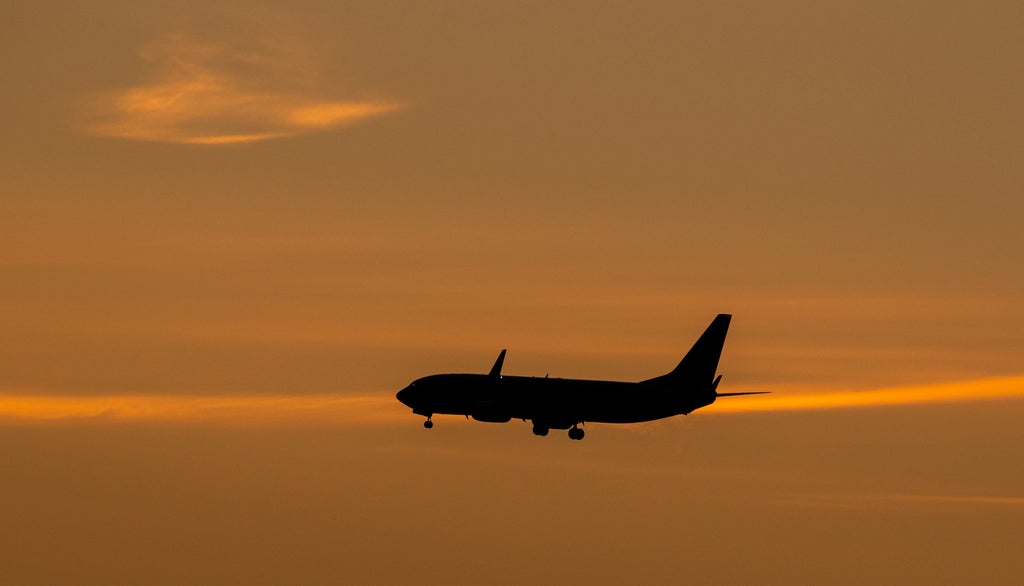
The parking garages are filling up. The terminals are buzzing. Passengers, and their bags stuffed with sunscreen and snacks, are back.
Airlines say the effects of the omicron variant have largely faded, and even with concerns about the BA.2 strain, rising fuel prices and higher labour costs, the industry’s hopes for a strong spring and summer appear to be on track. Two years after the pandemic began, demand is showing up through increased bookings ahead of one of the busiest travel times of the year.
Tampa International Airport chief executive Joe Lopano said it’s starting to feel like before the pandemic – except for the 20-foot pink flamingo that arrived last month to greet visitors.
“Last year was good, but this year is even better,” Lopano said. “When you go out into the terminal, it feels like 2019.”
In March, the Transportation Security Administration reported 19 days in which officers screened more than 2 million people, compared to none in March 2021. April is seeing multiple days when screening counts are topping 2 million - a number that was routinely surpassed in 2019.
“People are beginning to travel again, there’s no denying that,” said Ragina Ali, spokeswoman for AAA Mid-Atlantic. “After being, for the lack of a better word, cooped up, they want to get out.”
In the nation’s capital, officials at Reagan National Airport are urging travellers to make advanced reservations if they want a parking space as garages increasingly reach capacity. Jack Potter, chief executive of the Metropolitan Washington Airports Authority, which manages National and Washington Dulles International Airport, said it’s another sign that travellers are coming back.
In a regulatory filing last month, United Airlines reported it was seeing better-than-expected bookings as the number of cases tied to omicron began to fade. The carrier said it expected revenue for the first quarter would be higher than originally forecast. At the time, United also said it expected to operate fewer flights than planned because of rising fuel prices and geopolitical factors.
“System bookings for future travel have improved close to 40 points since the first week of 2022 and business traffic has increased more than 30 points since the peak of the Omicron impact in January 2022,” the company reported in the filing.
Analysts say vaccines are another reason demand is stronger this year. At this time last year, health officials had only begun to offer coronavirus shots. According to a tally by The Washington Post, nearly 66 percent of Americans are now fully vaccinated.
Even so, the travel industry has been here before: Last spring, the vaccine rollout spurred renewed demand for air travel, then the delta variant stalled the recovery in late summer. Bookings surged again around Thanksgiving and Christmas, but so too did infections tied to the omicron variant. The rising number of cases left airlines short-staffed and - combined with bad weather - led to thousands of flight delays during one of the busiest travel periods of the year.
Mindful of the potential pitfalls, many carriers have trimmed their schedules to better match staffing levels, hoping to avoid a repeat of last year’s troubles. Alaska Airlines is offering cash incentives to flight attendants to ensure it has enough personnel during the spring break season.
Still, operational issues remain. More than 3,000 flights were cancelled last weekend amid thunderstorms in Florida as carriers simultaneously struggled with staffing issues. As fuel and labour costs rise, airlines are competing with one another to replace tens of thousands of workers who left during the pandemic.
Demand for lucrative business travel is growing as more people return to offices but still lags behind pre-pandemic levels with a recovery not expected until 2024, according to the U.S. Travel Association.
Following the rising demand, ticket prices are also edging up. Data from Airlines Reporting Corp., which tracks payments between airlines and travel agencies on tickets purchased in the United States, found the cost for an average U.S. round-trip ticket in February was $464, a 34 percent increase from February 2021, when the average price was $346. Even so, that number was still below the pre-pandemic February monthly average of $488.
“If you’ve been watching fares during the pandemic, you’d think that fares have gone up dramatically, but they are not at 2019 levels,” said George Ferguson, a senior aerospace analyst with Bloomberg Intelligence.
Ferguson and other analysts said it was inevitable that fares would rise after more people began flying.
Willis Orlando, a senior products operations specialist with Scott’s Cheap Flights, said that as carriers have added extra fees for everything from additional legroom to early boarding, they have become less dependent on baseline airfare for revenue. The “unbundling” of options that used to be included in the price of a ticket, Orlando said, allows larger carriers to better compete for leisure travellers. It might also allow them more flexibility on fares moving forward, he said.
Kerry Tan, an associate professor of economics at Loyola University, said there could be a silver lining for the industry in higher fuel prices, which might prompt people to consider flying instead of driving.
“The fact that gas prices have increased has made airfares a little more attractive,” he said.
Rising demand for travel also comes as a federal mask mandate is slated to expire. The Biden administration has not indicated whether it will extend the requirement for masks on airplanes, buses, ferries and in other public transportation settings beyond April 18. Travel industry officials have been pushing for the requirement to be lifted.
In a March 23 letter to President Biden, 10 airline executives said requirements that mandate people wear masks on planes and show proof of a negative coronavirus test before boarding U.S.-bound flights should be dropped.
“Much has changed since these measures were imposed and they no longer make sense in the current public health context,” the executives wrote.
Masks or no masks, Tampa’s Lopano is just happy to see terminals full of travellers again.
“To see the look of joy and happiness on their faces after putting their lives on hold for two years - they really just want to go out and enjoy,” he said. “We’ve kind of entered a new period here and people are ready to celebrate.”







